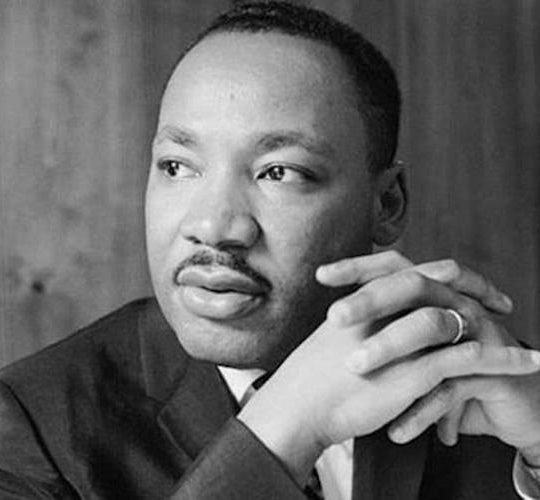by Dr. Paul Criss, Dean – Belhaven University Memphis/DeSoto
2018 commemorates the 50th Anniversary of the assassination of Dr. Martin Luther King, Jr. at the Lorraine Motel in Memphis on April 4, 1968. As we celebrate the life of Dr. King this Martin Luther King, Jr. Day and then prepare to commemorate the tragic day of his assassination, it seems important to reflect on his life and message. I am sure that many of you will have questions raised in your classes and you will want to encourage your students to take some time for reflection. This is especially needed due to the social unrest we have been experiencing in our country and even in academia recently.
Many students and leaders in academia are looking for glimpses of hope and truth within the current social framework. I believe our best source for reflection is history and Scripture, as did Dr. King. In his book on the history of the Civil Rights movement, David L. Chapell describes the movement as not political, but as primarily religious and spiritual. White liberal leaders in the North who were allies of the African American civil rights leaders were not advocates of civil disobedience or of a direct response to segregation. Believing in the goodness of human nature, they supported education and enlightenment to bring about social and racial progress; however, that would not be enough. Chapell argues that African American civil rights leaders were rooted in the biblical understanding of the human sin nature and in the rebuke of social injustice offered by the Hebrew prophets. He also shows that it was their vibrant faith that empowered them to press for justice despite the often violent opposition to this biblical standard. Chapell concludes that there is no way to comprehend what occurred until you see the Civil Rights movement as a religious revival.1
Dr. Timothy Keller builds on this understanding specifically addressing Dr. King’s living out of this biblical ethic in his book The Reason for God:
“When Martin Luther King, Jr., confronted racism in the white church in the South, he did not call Southern churches to become more secular. Read his sermons and ‘Letter from Birmingham Jail’ and see how he argued. He invoked God’s moral law and the Scripture. He called white Christians to be more true to their own beliefs and to realize what the Bible really teaches. He did not say, ‘Truth is relative and everyone is free to determine what is right or wrong for them.’ If everything is relative, there would have been no incentive for white people in the South to give up their power. Rather, Dr. King invoked the prophet Amos, who said, ‘Let justice role down like waters, and righteousness as a mighty stream’ (Amos 5:24). The greatest champion of justice in our era knew the antidote to racism was not less Christianity, but a deeper and truer Christianity.”2
That is the key, not only to all intellectual endeavors, but also to all social progress – to become truer as individuals and as a society to a deeper and truer Christianity. As your students inquire and as you reflect on what happened 50+ years ago and on what is happening today, it is hoped that we will personally inch closer to the biblical standard and that we will lead others to do the same.
Resources
1 Chappell, David L., A Stone of Hope: Prophetic Religion and the Death of Jim Crow (University of North Carolina Press, 2003).
2 Keller, Timothy, The Reason for God: Belief in an Age of Skepticism (New York: Penguin Random House, 2008).
Helpful Online Resources:
- kingcenter.org; http://www.thekingcenter.org/books-bibliography
- http://www.aascu.org/programs/ADP/publications/MLK/
- rca.org/resources/mlkblackhistorymonth
- http://www.poetpatriot.com/holidays-martin-luther-king-jr-day.htm
- desiringgod.org/articles/dont-waste-martin-luther-king-weekend
- http://www.churchmarketingsucks.com/2015/01/martin-luther-king-jr-day/
- http://www.christianitytoday.com/history/issues/issue-65/martin-luther-king-jr.html
- crosswalk.com/faith/spiritual-life/inspiring-quotes/31-powerful-quotes-by-dr-martin-luther-king-jr.html
- dclibrary.org/mlkday
- edutopia.org/article/resources-martin-luther-king-jr-day-matt-davis
- nobelprize.org/nobel_prizes/peace/laureates/1964/king-lecture.html
- http://www.history.com/topics/black-history/martin-luther-king-jr
- tes.com/teaching-resources/blog/commemorating-martin-luther-king-jr-day
- thoughtco.com/martin-luther-king-day-federal-holiday-45159
- thegospelcoalition.org/blogs/evangelical-history/the-day-martin-luther-luther-king-jr-prayed-at-the-billy-graham-new-york-crusade/ .
- http://edsitement.neh.gov/feature/i-have-dream-celebrating-vision-martin-luther-king-jr
